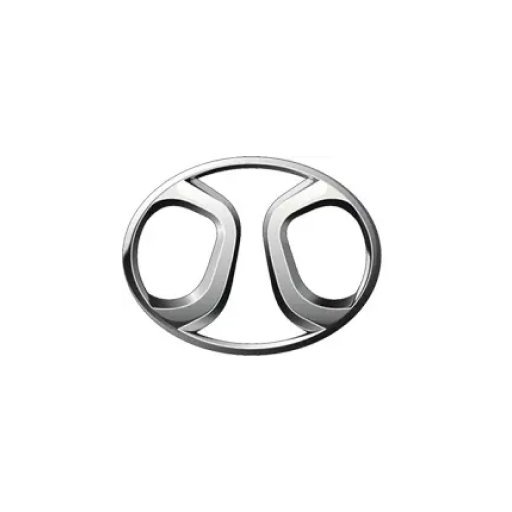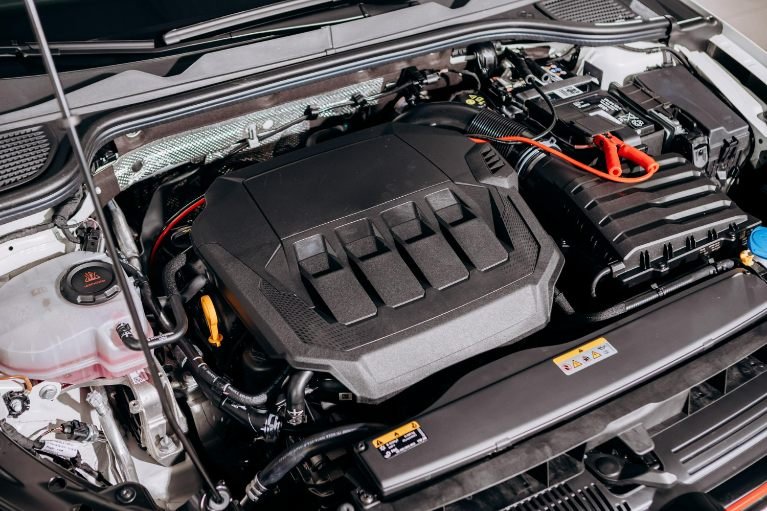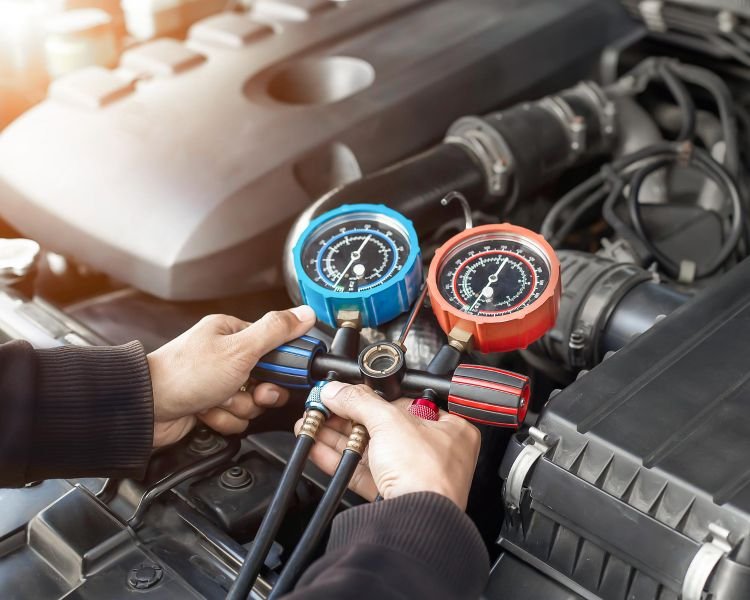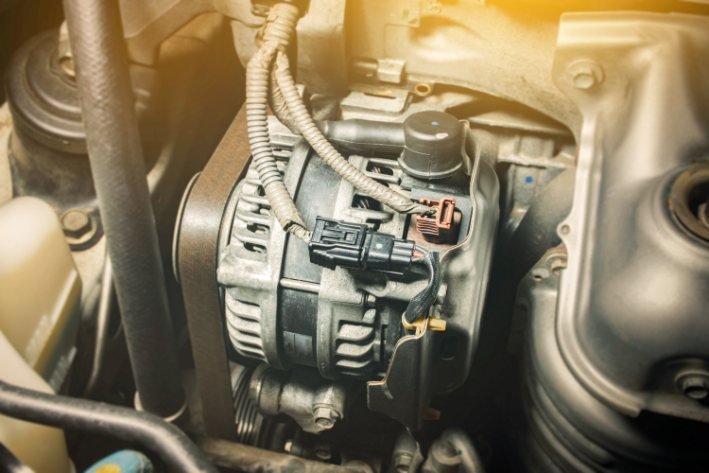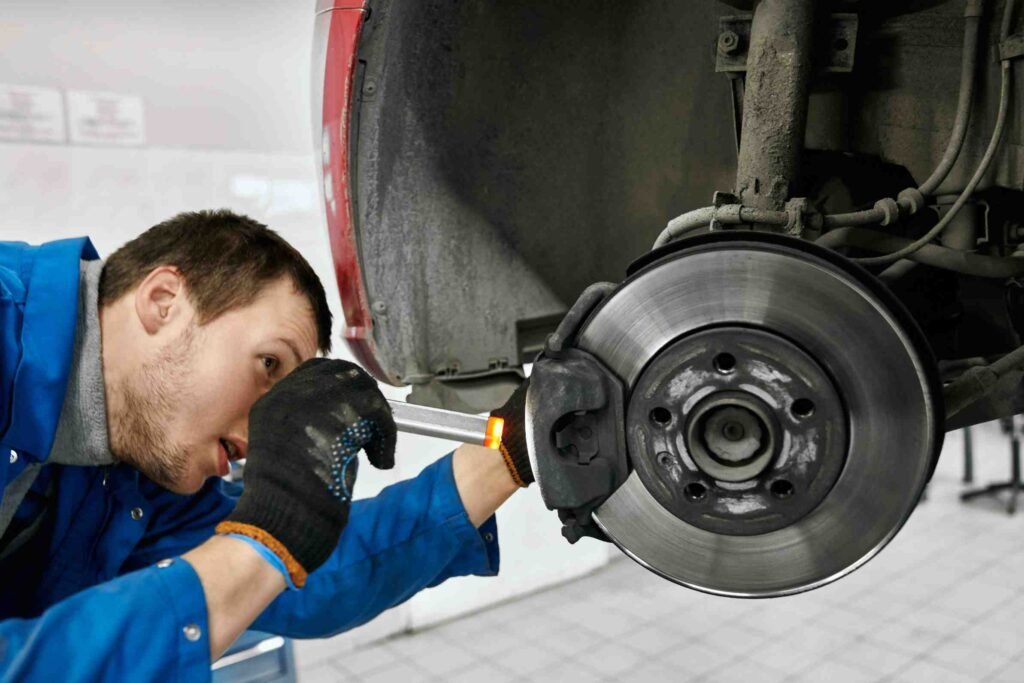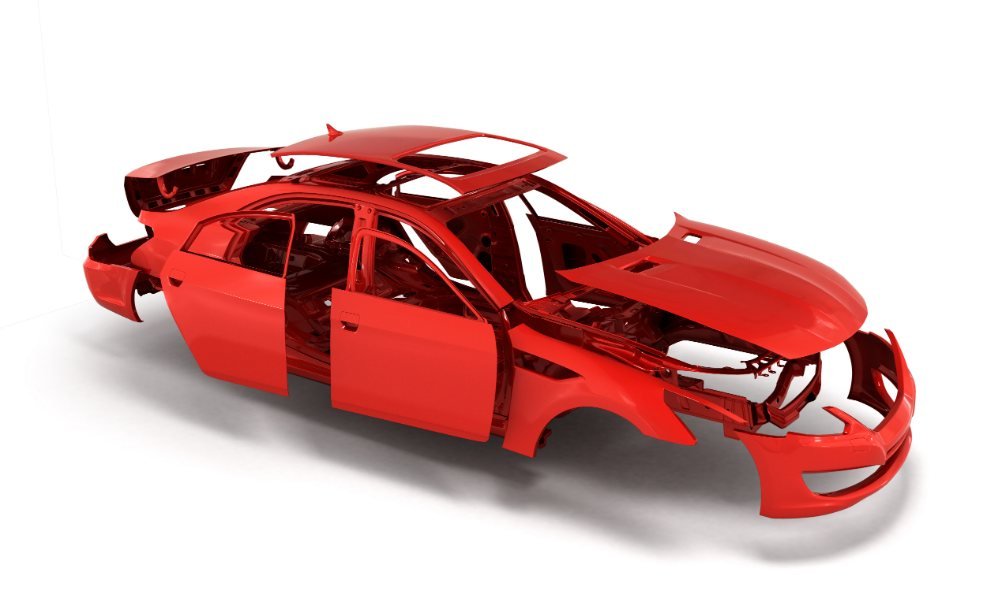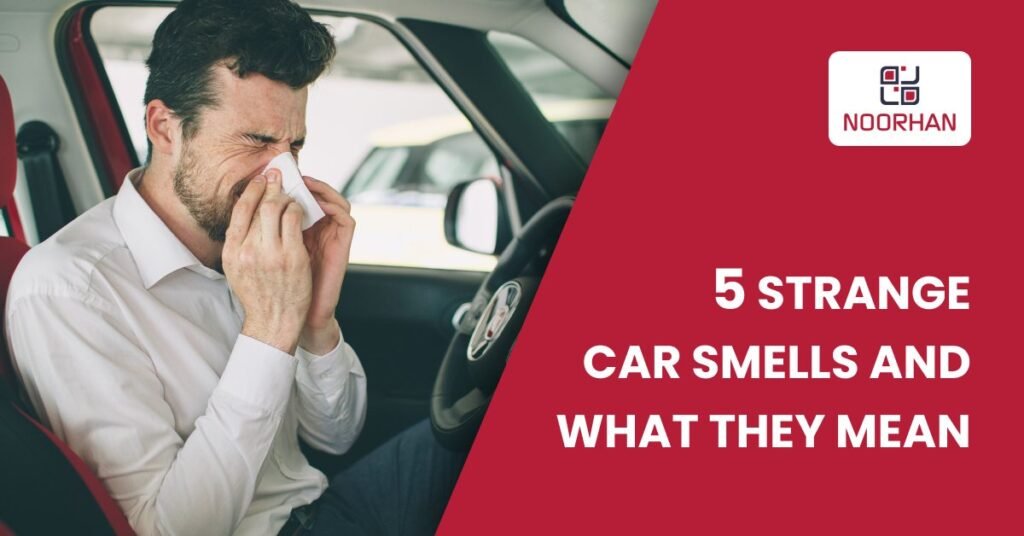5 Strange Car Smells and What They Mean
Most of us know that unique “new car smell,” right? It’s that scent you get when your car is fresh out of the factory, often caused by something called “off-gassing.” Off-gassing happens when the materials inside your car, like plastics, fabrics, and adhesives, release some chemical stuff known as volatile organic compounds. Strange, huh? But here’s the twist – many folks actually love that smell so much that companies sell it as air fresheners shaped like tiny trees or in auto sprays.
Now, here’s where it gets interesting. While we’re not entirely sure if breathing in that genuine new-car smell is bad for your health, there are other odours your car might produce that are like red flags for potential problems under the hood. Ignoring these smells could spell big trouble.
So, let’s dive into the world of car aromas and figure out what might be going on when your vehicle starts assaulting your sense of smell.
Burning Smell: Something is on Fire
Driving along, you might catch a whiff of something burning. No, it’s not a pleasant scented candle; it’s more like a rubbery, not-so-nice smell. But what’s the story behind this peculiar odor?
1. Burning Rubber Smell:
If your car gives a burning rubber smell, your tires might be the culprit. It could be due to rubbing against something they shouldn’t or a part getting excessively hot. To solve this mystery:
- Investigate: Examine your tires and the areas around them for any unusual wear or objects lodged in the wheels.
- Action: Address any issues promptly to avoid potential damage.
2. Burning Oil Smell:
A burnt oil smell signals trouble. It might indicate an oil leak, with oil finding its way where it shouldn’t be.
- Check Under the Car: Look for any oil puddles beneath your car.
- Prompt Fix: Swiftly address any leaks to prevent further complications.
3. Electrical Burning Smell:
If your nose picks up an electrically burning scent, this is a serious matter. It could point to wiring or electrical component issues.
- Emergency Alert: Immediately consult a mechanic to prevent potential fire hazards.
- Professional Inspection: Let a professional assess and resolve electrical problems.
Your nose plays the role of a car detective. If an unusual smell emerges, don’t dismiss it. Investigate or seek assistance from a car-savvy friend. Timely resolution of issues can save you from significant headaches down the road. Drive safe, and let your nose guide you!
Sweet or Syrup Odor
If your car has suddenly started to give a sweet, syrupy scent, it’s not a culinary delight; it might be a sign of trouble.
1. Coolant Leak:
That sweet aroma could indicate a coolant leak. Coolant helps regulate your engine temperature, and a leak is a cause for concern.
- Undercarriage Check: Examine under your car for colourful puddles.
- Swift Fix: Address coolant leaks promptly to prevent engine overheating.
2. Transmission Fluid Trouble:
Another sweet smell may point to transmission fluid issues, crucial for smooth gear shifts.
- Detect the Scent: If you sense sweetness, there might be a transmission fluid leak.
- Professional Examination: Consult a mechanic to avoid potential transmission complications.
A sweet-smelling car is like a signal, whispering, “Hey, something’s not right here!” Don’t panic, but do take it seriously. Check for leaks and consult a mechanic. Early intervention is the key to maintaining a healthy ride, akin to a visit to the doctor for your car!
Rotten Egg Odor
Nobody likes the smell of rotten eggs in their refrigerator. But it could be an even bigger concern when this smell starts to come out from your car. If your car starts smelling like rotten eggs, it’s not playing a prank; it’s trying to communicate a potential issue with the catalytic converter.
Catalytic Converter Function:
Think of the catalytic converter as a superhero in your car, cleaning up the bad stuff in your exhaust to make it less harmful. The rotten egg smell is due to sulfur in the gas. If the catalytic converter isn’t working correctly, it can’t break down sulfur properly, leading to a stench.
Action Steps:
- Stay Calm: Don’t panic, but don’t ignore it either.
- Professional Inspection: Head to a mechanic to assess the catalytic converter’s condition.
- Environmental Impact: A malfunctioning converter can harm your car’s performance and the environment.
A stinky car isn’t normal, and it’s better to address issues early. Trust your car’s signals and get it checked. Happy driving, with a fresh-smelling car!
Moldy or Musty Odors
Ever hopped into your car and noticed a weird, mouldy smell? It’s not just a strange perfume your car decided to wear. That smell could be shouting about something going wrong under the hood.
Clogged Air Conditioning System
So, you know how your car keeps you cool in the hot summer days. We are grateful to the person who introduced AC in cars. Well, sometimes, the AC can get a bit clogged up. Imagine your AC trying to breathe through a stuffed-up nose – not so great, right? When this happens, moisture builds up, creating a perfect home for mould and bacteria. And that’s what you’re smelling – mould party in your car!
Interior Leaks
Sometimes, water decides it wants to be an uninvited guest in your car. Maybe it’s a leaky roof or a window that didn’t get the memo about keeping water out. This water, if left unchecked, can turn your car into a damp, musty paradise for mould.
So, what should you do? Don’t ignore the smells! Get a car doctor (aka a mechanic) to check things out. They can clean the AC and fix those leaks, making your car smell as fresh as a daisy again.
Remember, a mouldy smell isn’t just about your comfort; it’s a warning sign from your car’s nose – the nose that you should pay attention to!
Fuel Odors
You know that smell of gas when you’re at the pump? Well, if you suddenly catch a whiff of that while you’re driving, it’s not a good sign. Your car might be telling you it has a fuel problem.
Why’s It Smellin’ Like Fuel?
If there’s a fuel leak, you’ll smell like petrol. It’s like your car’s giving off a warning signal. Sometimes, it happens because a part called the fuel injector is acting up, or maybe there’s a loose fuel cap. Either way, you don’t want to ignore it.
First off, it’s a safety thing. fuel is flammable, and we don’t want any fires. Second, a fuel leak messes with your car’s performance. It messes up the air-to-fuel ratio, making your engine work harder than it should.
What to Do?
Don’t be a hero – if you smell petrol, pull over safely and turn off the engine. Check for visible leaks, but don’t go poking around if you’re not sure. Get a professional to look at it. It might be a simple fix, like a tightened gas cap, or it could be something more serious. Better safe than sorry!
Tackling Unpleasant Car Odors
Beyond the mechanical culprits mentioned earlier, a foul-smelling car interior can stem from various sources like forgotten food, spilt drinks, ice cream mishaps, or incidents involving kids or pets. Even unwelcome guests like rodents might leave behind evidence in the form of droppings or, worst-case scenario, a little creature carcass. To reclaim your car’s fresh scent, a close inspection is in order, followed by a thorough cleaning session.
Kick off the cleanup mission by vacuuming and shampooing the carpets using a standard household rug-cleaning spray foam. Pay special attention to areas with stubborn spills and entrenched food particles. Don’t overlook the nooks under the seats, known havens for debris, and the trunk or hatch area susceptible to absorbing odours from groceries or sports gear. Take out floor and cargo mats for a separate wash, ensuring they’re completely dry before reinstallation.
For cloth seats, a dust vacuum followed by an application of an upholstery-cleaning product works wonders, especially on persistent stains. Treat vinyl upholstery and trim with a plastic and rubber surface-friendly spray, while leather seats and trim benefit from a touch of leather-restoring cream, applied gently with a clean towel.
If you or your fellow travellers indulge in smoking, maintain a clean ashtray, regularly air out the cabin, and use an in-vehicle deodorizer to banish lingering odours. To combat the stubborn smell of cigarette tar, wipe down interior panels with a 50/50 water and vinegar solution.
Last but not least, ensure a breath of fresh air by swapping out the old cabin air filter, if applicable, for a new one. This not only eliminates potential odours but also provides relief for those dealing with seasonal allergies, allowing for a more enjoyable drive.
Do not dismiss that weird smell. If you’re aware enough, these smells can tell you exactly what’s wrong with your car.


























